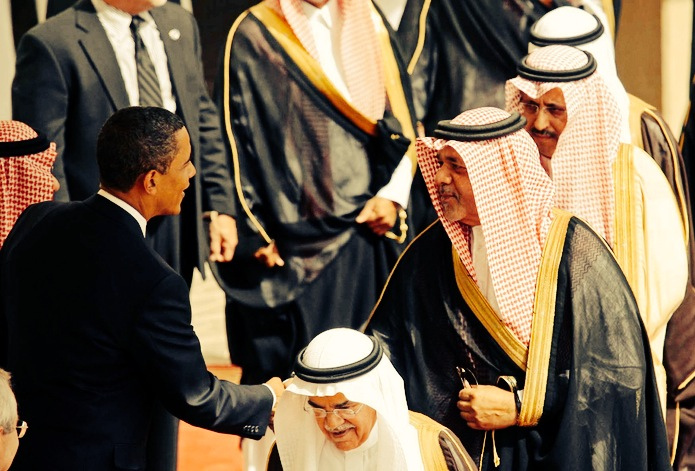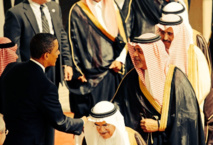The Kingdom has long been the world's largest supplier of crude oil, but now it decided to increase the supply of diesel fuel. In itself, this means the beginning of a new price war with competitors in Asia.
Saudi Arabia is the largest consumer of gasoline in the Middle East, with more than 25% of the total volume of oil produced, or more than 10 million barrels a day consumed domestically.
Currently, processors of the Kingdom began to consume even more oil on the background of falling prices and global market excess.
In fact, the Kingdom’s consumption is now equal to the volume of Royal Dutch Shell, that is ranked fourth in the world in terms of processing.
At the moment, Saudi Arabia through Aramco Trading Co. offered 2.8 million barrels of diesel under the tender for delivery in late July and early August, Reuters reported with reference to the traders.
In the meantime, this is ultra-low sulfur fuels, and this volume corresponds to the consumption amount of Japan for 3.5 days.
Until 2010, Saudi Arabia almost didn’t touch diesel fuel, but in 2014, the export volume exceeded 300 thousand barrels per day.
The first deliveries are meant to European countries that have traditionally been Indian and South Korean processors’ territory.
Such major changes are the first signs of changes in Saudi Arabian structure of the economy, about what the Saudis were talking for quite a long time, bearing in mind paying more attention to the development of alternative energy.
Three years ago, the authorities stated that they have plans to build solar farms, so that they will be able to export electricity. However, the recent drop in oil prices led to doubts about the profitability of such projects.
But refining is also possible to obtain certain advantages. First, jobs are created, which favorably affects the demand and the overall economy. Second, the fuel is more profitable to sell, which is very important in the environment of falling oil prices and the corresponding reduction of income.
Saudi Arabia has actively started to work on the diesel fuel market and the current increase in supplies was made possible after the commissioning a factory in Yanbu in April, with a capacity of 400 th. barrels per day.
This is a very large volume, which demands several tankers for transportation of the whole amount of distillate. Apparently, now there are at least seven, including Suezmax Atina tanker, accommodating the 120 th. tons.
According to a new research, published in Energy Policy journal, the Kingdom is planning to diversify its economy and now is producing petroleum.
For these changes, Saudi Arabia will have to continue to move forward in the development of its economy.
Investments in processing can give a lot, including reducing the Kingdom’s dependence on imported fuel and receiving additional margin.
The development of oil refining will also allow to export the heavy crude oil to a wider range of clients, whereas now only countries where the refineries configured of for such energy suppliers are act as suppliers.
But such steps will also lead to a weakening of the traditional role of Saudi Arabia as a global crude oil market controller.
They'll have to send more oil to be recycled, and thus the possibility to reduce or increase production, which will ensure the movement of prices in the right direction, will be significantly reduced.
The decrease in the flexibility of Saudi Arabia may be beneficial for the whole oil market, as price volatility may be lower.
The expansion of the refining capacity of the state Saudi Aramco up to 120 th. barrels should be the impetus to change the position of Saudi Arabia. The project also will involve two other companies.
It should also be borne in mind that domestic demand rose to 3.1 million barrels per day, accounting for 27% of total oil production in the country. If such growth rates continue, domestic demand will have grown even twice by 2025. Saudi Arabia will continue to control the supply, but will also have to regulate them within the country, increasing or reducing the volume of processing as well as offering new discounts, if that would require a competitive environment.
Traditionally, the export performance of the fuel reaches the maximum level, after falling domestic demand for electricity. Therefore, Saudi Arabia can strengthen its position in the new price war this autumn or winter.
source: economictimes.indiatimes.com
Saudi Arabia is the largest consumer of gasoline in the Middle East, with more than 25% of the total volume of oil produced, or more than 10 million barrels a day consumed domestically.
Currently, processors of the Kingdom began to consume even more oil on the background of falling prices and global market excess.
In fact, the Kingdom’s consumption is now equal to the volume of Royal Dutch Shell, that is ranked fourth in the world in terms of processing.
At the moment, Saudi Arabia through Aramco Trading Co. offered 2.8 million barrels of diesel under the tender for delivery in late July and early August, Reuters reported with reference to the traders.
In the meantime, this is ultra-low sulfur fuels, and this volume corresponds to the consumption amount of Japan for 3.5 days.
Until 2010, Saudi Arabia almost didn’t touch diesel fuel, but in 2014, the export volume exceeded 300 thousand barrels per day.
The first deliveries are meant to European countries that have traditionally been Indian and South Korean processors’ territory.
Such major changes are the first signs of changes in Saudi Arabian structure of the economy, about what the Saudis were talking for quite a long time, bearing in mind paying more attention to the development of alternative energy.
Three years ago, the authorities stated that they have plans to build solar farms, so that they will be able to export electricity. However, the recent drop in oil prices led to doubts about the profitability of such projects.
But refining is also possible to obtain certain advantages. First, jobs are created, which favorably affects the demand and the overall economy. Second, the fuel is more profitable to sell, which is very important in the environment of falling oil prices and the corresponding reduction of income.
Saudi Arabia has actively started to work on the diesel fuel market and the current increase in supplies was made possible after the commissioning a factory in Yanbu in April, with a capacity of 400 th. barrels per day.
This is a very large volume, which demands several tankers for transportation of the whole amount of distillate. Apparently, now there are at least seven, including Suezmax Atina tanker, accommodating the 120 th. tons.
According to a new research, published in Energy Policy journal, the Kingdom is planning to diversify its economy and now is producing petroleum.
For these changes, Saudi Arabia will have to continue to move forward in the development of its economy.
Investments in processing can give a lot, including reducing the Kingdom’s dependence on imported fuel and receiving additional margin.
The development of oil refining will also allow to export the heavy crude oil to a wider range of clients, whereas now only countries where the refineries configured of for such energy suppliers are act as suppliers.
But such steps will also lead to a weakening of the traditional role of Saudi Arabia as a global crude oil market controller.
They'll have to send more oil to be recycled, and thus the possibility to reduce or increase production, which will ensure the movement of prices in the right direction, will be significantly reduced.
The decrease in the flexibility of Saudi Arabia may be beneficial for the whole oil market, as price volatility may be lower.
The expansion of the refining capacity of the state Saudi Aramco up to 120 th. barrels should be the impetus to change the position of Saudi Arabia. The project also will involve two other companies.
It should also be borne in mind that domestic demand rose to 3.1 million barrels per day, accounting for 27% of total oil production in the country. If such growth rates continue, domestic demand will have grown even twice by 2025. Saudi Arabia will continue to control the supply, but will also have to regulate them within the country, increasing or reducing the volume of processing as well as offering new discounts, if that would require a competitive environment.
Traditionally, the export performance of the fuel reaches the maximum level, after falling domestic demand for electricity. Therefore, Saudi Arabia can strengthen its position in the new price war this autumn or winter.
source: economictimes.indiatimes.com



















